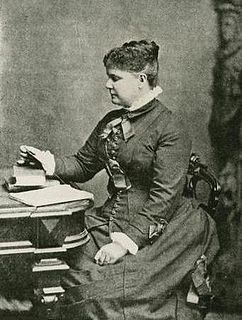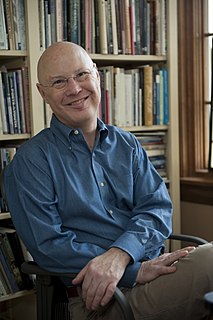A Quote by Celia Thaxter
If death were the exception and not the rule, and we were not so swiftly to follow, these separations would be intolerably sad. We know no more of our next change of life than we knew of this before we were born into it; but that which we call death is merely change, who can doubt?
Related Quotes
Don't depend on death to liberate you from your imperfections. You are exactly the same after death as you were before. Nothing changes; you only give up the body. If you are a thief or a liar or a cheater before death, you don't become an angel merely by dying. If such were possible, then let us all go and jump in the ocean now and become angels at once! Whatever you have made of yourself thus far, so will you be hereafter. And when you reincarnate, you will bring that same nature with you. To change, you have to make the effort. This world is the place to do it.
I love Death because he breaks the human pattern and frees us from pleasures too prolonged as well as from the pains of this world. It is pleasant, too, to remember that Death lies in our hands; he must come if we call him. ... I think if there were no death, life would be more than flesh and blood could bear.
And fantasy it was, for we were not strong, only aggressive; we were not free, merely licensed; we were not compassionate, we were polite; not good, but well behaved. We courted death in order to call ourselves brave, and hid like thieves from life. We substituted good grammar for intellect; we switched habits to simulate maturity; we rearranged lies and called it truth, seeing in the new pattern of an old idea the Revelation and the Word.
We felt the imprisonment of being a girl, the way it made your mind active and dreamy, and how you ended up knowing which colors went together. We knew that the girls were our twins, that we all existed in space like animals with identical skins, and that they knew everything about us though we couldn’t fathom them at all. We knew, finally, that the girls were really women in disguise, that they understood love and even death, and that our job was merely to create the noise that seemed to fascinate them.
If I had my life over again I should form the habit of nightly composing myself to thoughts of death. I would practise, as it were, the remembrance of death. There is no other practice which so intensifies life. Death, when it approaches, ought not to take one by surprise. It should be part of the full expectancy of life. Without an ever-present sense of death life is insipid.
Even then, more than a year earlier, there were neurons in her head, not far from her ears, that were being strangled to death, too quietly for her to hear them. Some would argue that things were going so insiduously wrong that the neurons themselves initiated events that would lead to their own destruction. Whether it was molecular murder or cellular suicide, they were unable to warn her of what was happening before they died.
Our enemies didn't adhere to the Geneva Convention. Many of my comrades were subjected to very cruel, very inhumane and degrading treatment, a few of them even unto death. But every one of us - every single one of us - knew and took great strength from the belief that we were different from our enemies, that we were better than them, that we, if the roles were reversed, would not disgrace ourselves by committing or countenancing such mistreatment of them.
When I was a kid they didn't call it dyslexia. They called it you know, you were slow, or you were retarded, or whatever. What you can never change is the effect that the words 'dumb' and 'stupid' have on young people. I knew I wasn't stupid, and I knew I wasn't dumb. My mother told me that. If you read to me, I could tell you everything that you read. They didn't know what it was. They knew I wasn't lazy, but what was it?






































